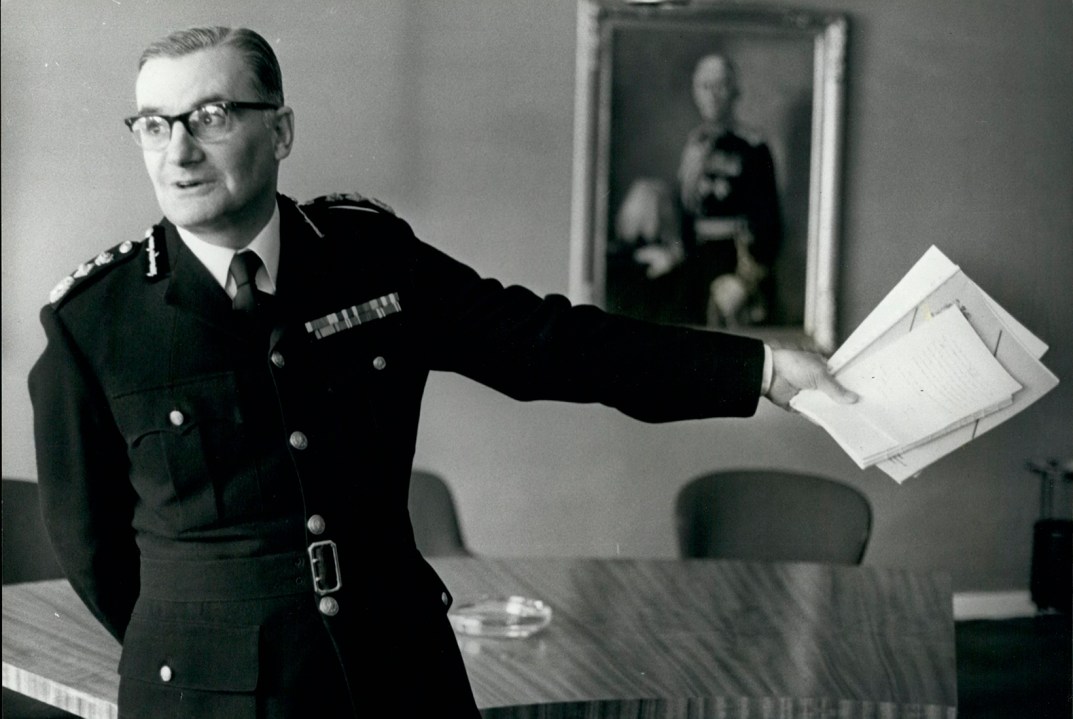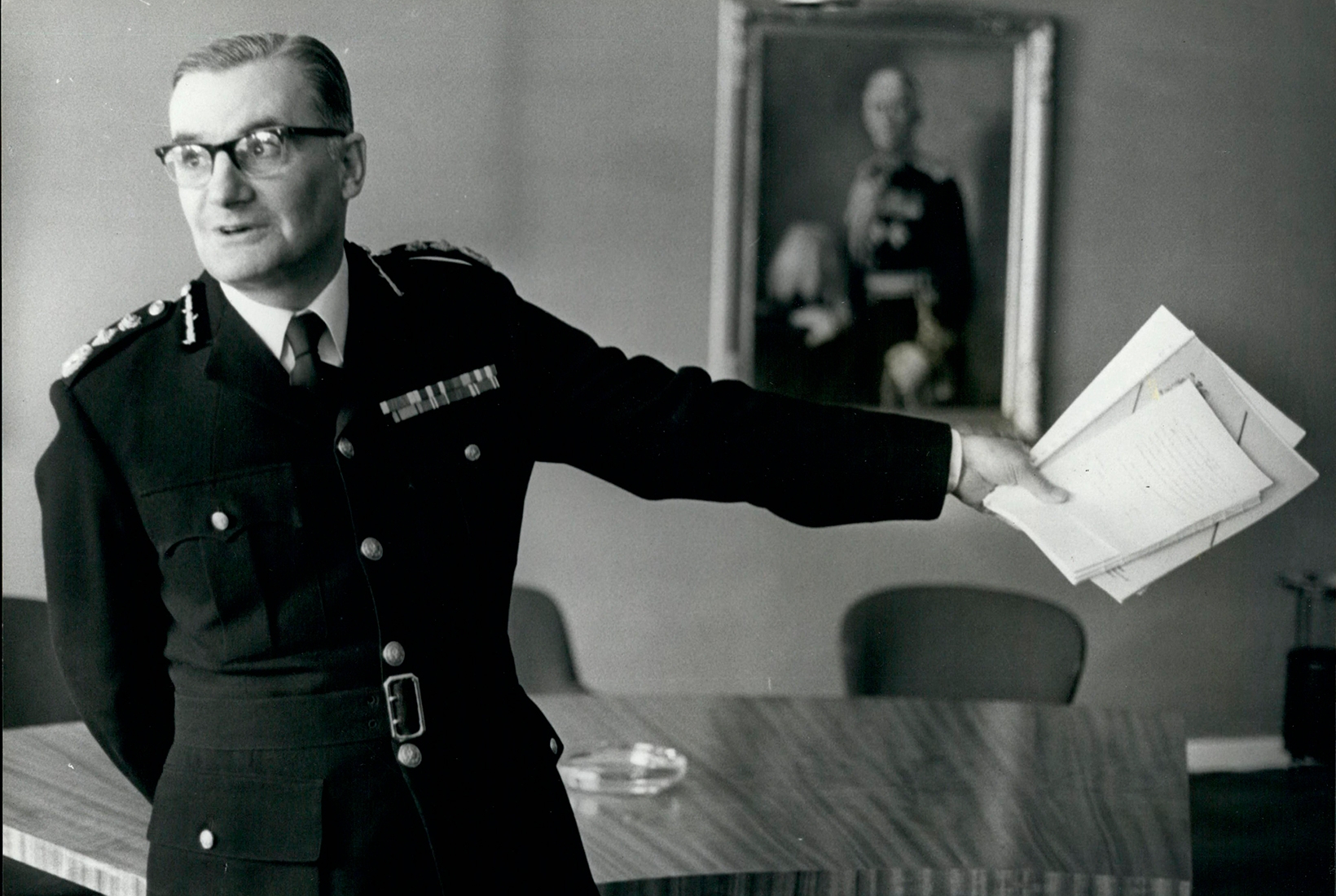If you’re after an exciting, twisty programme about police corruption that doesn’t also feel a bit like sitting an exam in Line of Duty studies, then Bent Coppers: Crossing the Line of Duty could well hit the spot. As both the timing and subtitle not so much suggest as bellow, this three-part documentary series is an obvious attempt to cash in on its fictional counterpart. Happily, though, it’s a successful one.
In Wednesday’s second episode the focus was on 1970s Soho, where the most reliable way to make a fortune was by opening what the narrator Philip Glenister called, in suitably 1970s argot, ‘dirty bookshops’. Of course, there were certain overheads involved, like rent and huge bribes to the police. But once they were sorted, the apparently fathomless human desire for pornography did the rest. Granted, the police would occasionally raid your shop for form’s sake. On the other hand, you could pick up the confiscated material a couple of days later from the local nick.
One man who followed this business model assiduously was Jimmy Humphreys, a career criminal who, in a nice period touch, was married to a stripper called Rusty. As befitted his ‘king of porn’ status, Humphreys dealt with the most senior of bent coppers. Among them was the head of the Flying Squad (aka The Sweeney), Ken Drury, whom Humphreys wined and dined several times a week — and, when that began to take its toll, supplied with slimming pills and a rowing machine. So untouchable did Drury feel that when, in 1972, he jetted off for a spot of winter sun with Humphreys, Rusty and his own wife, he signed in at their Cyprus hotel under his real name, giving his address as ‘New Scotland Yard’.
Eighteen police officers were sentenced to more than 100 years in prison between them
But in fact, various opposition forces were already closing in. One was public opinion — or at least the strand of it led by Lord Longford. In a treasurable archive clip on Wednesday, Longford was seen looking at the somewhat niche titles in Soho shop windows, including American Lesbians (presumably because no other kind would do) and Teenage Perverts, which his Lordship suspected, perhaps rightly, was not ‘a serious study’ of the subject.
Then there was the press, led by the Sunday People, which later in 1972 published details of that Cyprus jaunt, forcing Drury into the transparently desperate explanation that the foursome had been there searching for Ronnie Biggs. Finally came the newly appointed Met commissioner Robert Mark, with his famous if slightly unambitious definition of ‘a good police force’ as ‘one that catches more criminals than it employs’. As a result, he set up the anti-corruption unit A10, duly regarded as treacherous by CID (and possibly as inspirational by Jed Mercurio).
Given that Bent Coppers has the structure of a thriller, I won’t reveal precisely what happened next. But I can say that it had such elements as a secret diary discovered in a Soho safe, Humphreys being found on the run in Holland despite having disguised himself in a pair of glasses, and 18 officers receiving more than 100 years in prison between them.
True to form, the programme even ended on a cliffhanger, when Mark’s proud declaration that corruption had been rooted out was immediately followed by several hints that it hadn’t been…
Meanwhile, the alarming news for middle-aged viewers is that Kate Winslet is now playing a grandmother — although very much not one of the twinkly kind. Her eponymous character in Sky Atlantic’s Mare of Easttown is a police officer who seems equally bored of her job and the place she has to do it in. She’s also faced with a rebellious daughter, a rebellious mother and a script where almost every line makes it clear just how world-weary she is.
Monday’s opener began with a series of impressively grim establishing shots of the small-town Pennsylvania setting. From there, we moved to Mare reluctantly investigating a possible prowler and being denounced on local television by an old friend with cancer whose junkie daughter disappeared a year earlier, and hasn’t been found — largely, the friend thinks, because Mare isn’t doing her job properly. Even a night of traditional bra-on TV sex with a writer newly arrived in Easttown didn’t appear to cheer Mare up much.
Yet, while nobody will turn to the show for light relief, they might well turn to it for other reasons: the increasingly effective slow-burn plotting, the convincing nature of that small-town bleakness and, above all, Winslet’s performance — which avoids the ‘Behold my lack of glamour!’ self-consciousness that often comes when a good-looking actress goes free of make-up and dowdy of dress. Instead she evinces a moving sense of not-quite-defeated integrity that has you keenly hoping that Mare will rediscover her mojo. Personally, mind you, I wouldn’t bet on it.







Comments